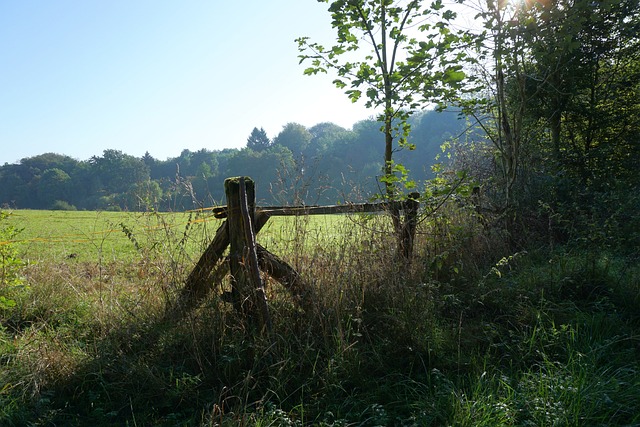In New Bedford, Massachusetts, enhancing your outdoor space with a chain link fence offers both security and aesthetic appeal. This article guides homeowners through the process of installing local chain link fences in New Bedford, providing insights on various styles, benefits, and practical considerations. We explore why opting for local installers is advantageous, offering expertise tailored to regional preferences and regulations. From selection to installation and maintenance, this comprehensive guide ensures your fence project is a success while adhering to local guidelines.
- Understanding Chain Link Fences: Styles and Benefits
- Why Choose Local Installers in New Bedford?
- The Selection Process: Finding Reliable Contractors
- Installation Steps: From Planning to Completion
- Maintenance Tips for Longevity and Safety
- Local Regulations: Permits and Compliance
Understanding Chain Link Fences: Styles and Benefits
Chain link fences are a versatile fencing solution, offering both security and aesthetic appeal. They come in various styles, from traditional mesh designs to more intricate patterns, suiting different tastes and purposes. In New Bedford, Massachusetts, when considering a chain link fence installation, understanding these options is key.
The benefits of chain link fences are numerous. They provide robust security, deterring intruders and containing pets effectively. Additionally, they are highly customizable, allowing for specific mesh sizes to suit privacy needs or to keep out unwanted wildlife. These fences also stand up well to harsh weather conditions, making them a reliable long-term investment for any property owner.
Why Choose Local Installers in New Bedford?
Choosing local chain link fence installers in New Bedford offers numerous advantages. Local businesses understand the unique needs and challenges specific to the area, ensuring your fence is installed with knowledge of local regulations and conditions. They often have a deep connection to the community, which translates into better customer service and a more personalized experience. By supporting local businesses, you contribute to the economic vitality of New Bedford, fostering a strong and sustainable community.
Additionally, local installers typically provide faster response times and more flexible scheduling options than larger, out-of-town companies. Their smaller size allows for agility in managing projects, meaning your fence can be installed promptly with minimal disruption to your daily life. Local businesses also often have access to regional suppliers, potentially leading to better pricing and a wider selection of materials.
The Selection Process: Finding Reliable Contractors
When selecting a chain link fence installer in New Bedford, Massachusetts, it’s crucial to prioritize reliability and expertise. Start by asking for referrals from friends or neighbors who have recently had similar projects done. Check online reviews on platforms like Yelp or Angie’s List to gauge customer satisfaction levels. Verify the contractor’s license and insurance coverage before signing any contracts.
Consider their portfolio and experience in installing chain link fences. A professional installer should be able to provide examples of their past work, showcasing their craftsmanship and attention to detail. Inquire about warranties or guarantees on their services and materials to ensure long-term peace of mind. Additionally, communicate your project specifics—fencelength, height, and any additional features—to gauge the contractor’s adaptability and expertise in customizing solutions tailored to your needs.
Installation Steps: From Planning to Completion
When it comes to installing a chain link fence in New Bedford, Massachusetts, the process involves several key steps that ensure a durable and secure barrier. Planning begins with assessing the property lines and obtaining necessary permits. Homeowners should also choose the appropriate height, type of mesh, and additional features like gates or locks. This stage is crucial for legal compliance and ensuring the final product meets specific requirements.
Once planning is complete, installation can commence. The process involves digging posts into the ground at predefined intervals, typically every 6 to 8 feet. These posts are then connected with horizontal rails, which in turn support the chain link mesh. All components must be securely fastened using appropriate hardware to withstand local weather conditions and potential environmental stress. Finally, gates or other accessories are added, ensuring smooth operation and completing the installation process.
Maintenance Tips for Longevity and Safety
Regular maintenance is key to ensuring your chain link fence remains robust and safe for years to come. Firstly, inspect it frequently for any signs of damage or wear, repairing or replacing damaged sections promptly. Cleaning the fence regularly with mild soap and water helps prevent rust and corrosion, especially in Massachusetts’ humid summers.
Lubricating rolling gates and hinges with a suitable lubricant can reduce friction, making them easier to operate. Ensure all components are securely fastened, especially after storms or high winds, to avoid loose connections that could pose a safety risk. Lastly, consider painting the fence periodically to protect it from the elements and maintain its aesthetic appeal.
Local Regulations: Permits and Compliance
When installing a chain link fence in New Bedford, Massachusetts, it’s crucial to understand local regulations regarding permits and compliance. Before beginning any construction or installation work, homeowners or contractors must obtain necessary permits from the city government. These permits ensure that the fence meets safety standards and aligns with zoning laws, which vary across different neighborhoods. Non-compliance can result in penalties, including fines and potential project halt.
Local authorities typically require detailed plans of the proposed fence, including dimensions, materials used, and exact location. It’s essential to check with the New Bedford Building Department or relevant city agency for up-to-date regulations and application procedures. Compliance not only ensures legal safety but also contributes to the overall aesthetic and safety of the community, maintaining a harmonious environment for all residents.
